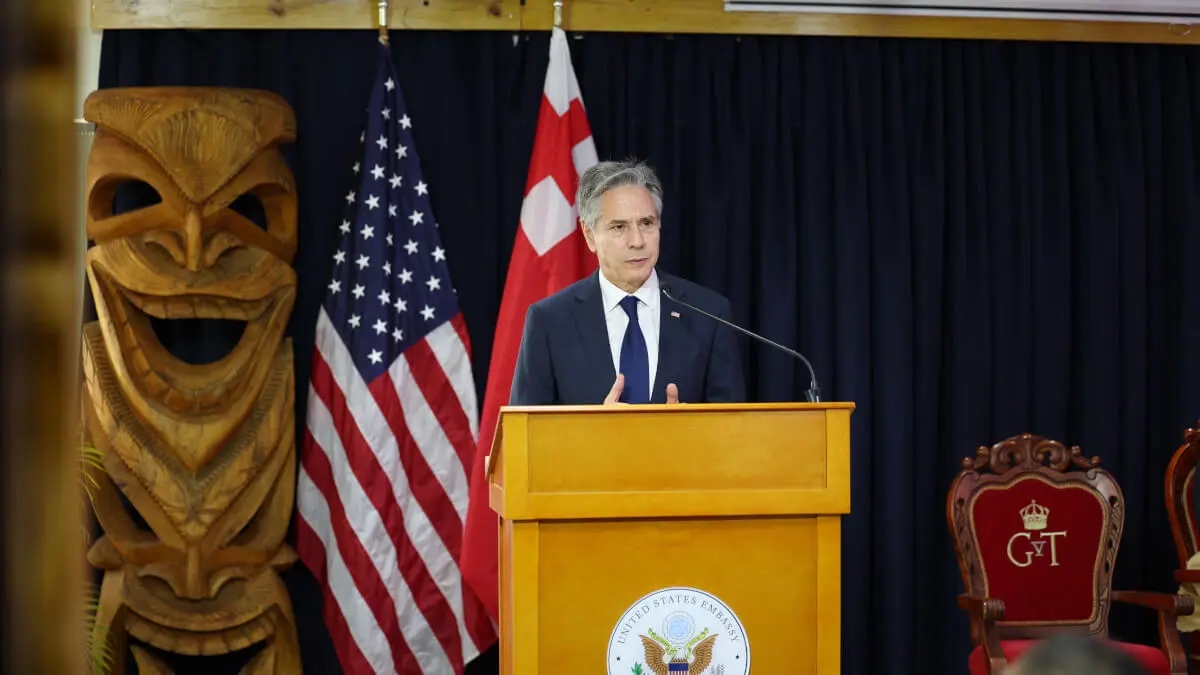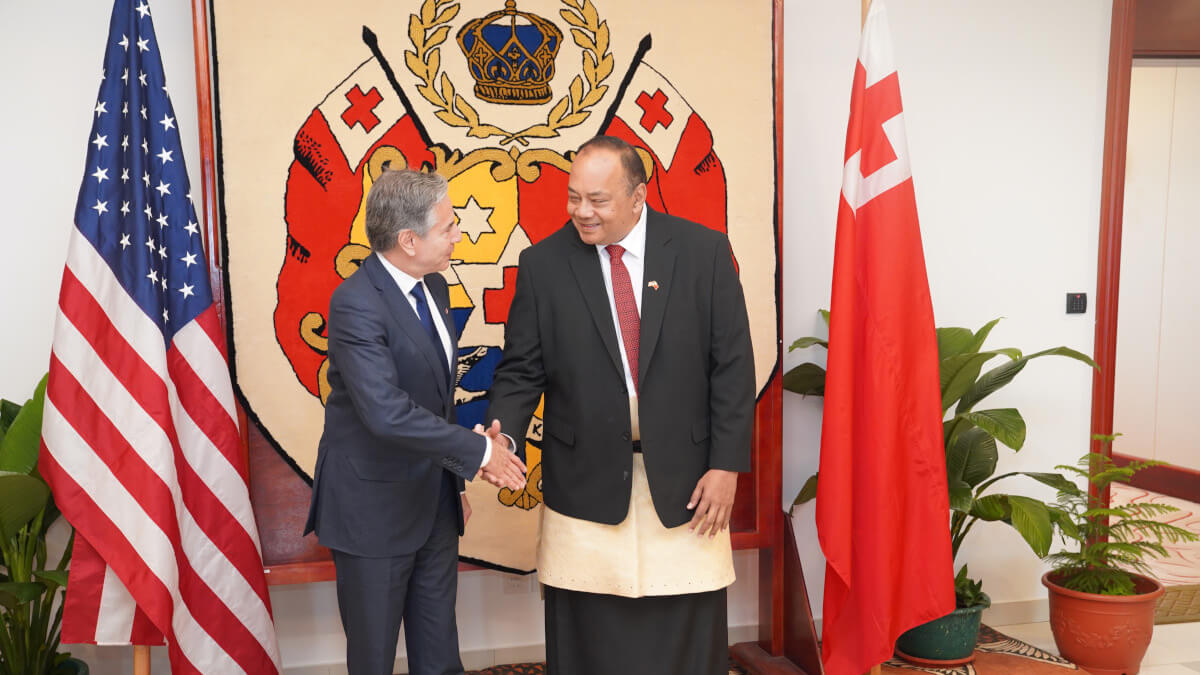US strikes back at China in South Pacific with parallel visits by Blinken and Austin

The United States is strengthening its commitment to the South Pacific with two separate visits to countries in the area that began on Wednesday by the Secretary of State, Antony Blinken, and the Secretary of Defence, Lloyd Austin, with which they are seeking to counteract China's growing influence in the area.
Blinken beat Austin by a few hours on his arrival at the first destination on his tour, Tonga, where one of the objectives was to officially open the new US Embassy, opened in May in Nuku'alofa, the capital of the Polynesian country of some 100,000 inhabitants, which was devastated in 2020 by a volcano and a tsunami.
From there, the head of US diplomacy today accused China during a press conference of "increasingly problematic behaviour" in the Indo-Pacific, and criticised "illegal maritime claims" and "militarisation of disputed areas" such as the South China Sea, which Beijing claims almost in its entirety.
However, he also stated in a more conciliatory tone that he hopes to "work well" with China's new foreign minister, Wang Yi, who held the post from 2013 to 2022 - the year he visited Tonga as part of a South Pacific tour - and who returned to his old post the day before to replace Qin Gang.

Qin was ousted on Tuesday without explanation after a month out of the public eye in China.
The head of US diplomacy will continue his tour with visits to New Zealand and Australia, where he will coincide between Friday and Saturday with Austin in the annual ministerial meeting with his Australian counterparts to address bilateral strategic issues.
Austin arrived in Papua New Guinea on Wednesday, the first visit by a Pentagon chief to the country.
"It is an honour to be the first US Secretary of Defence to visit Papua New Guinea, especially at a time of historic progress in the relationship between our countries. I look forward to advancing our defence cooperation and modernising our alliance," Austin stressed on his Twitter account upon arrival.
His trip follows the signing of a bilateral security pact in May that will give the US military access to Papua New Guinean ports and airports, it emerged after it was tabled in the Papua New Guinean parliament last month.
.@PeaceCorps volunteers proudly represent the United States and serve communities around the world. Today I was honored to swear in volunteers in Tonga. Looking forward to the great things they will accomplish with local partners in service to both of our countries. pic.twitter.com/NdJ8MbXRt1
— Secretary Antony Blinken (@SecBlinken) July 26, 2023
Papua New Guinea, an impoverished nation of about ten million people in the South Pacific rich in natural resources, including large gas reserves, has become a sought-after destination in recent months amid the tug of war between China and the US and its partners to increase influence in the area.
After Austin, French President Emmanuel Macron is expected to visit the country on Friday, following in the wake of recent visits by Indian Prime Minister Narendra Modi, New Zealand leader Chris Hipkins, Indonesian leader Joko Widodo and Blinken himself in May.
In recent months, the United States has courted several island nations in the once-forgotten South Pacific region, particularly in the wake of the security pact sealed between China and the Solomon Islands in April 2022 and Beijing's subsequent ambitions to sign a multilateral agreement with a dozen countries.
The closeness between China and the Solomon Islands also raises suspicions between Australia and New Zealand, whose leaders, Australian Anthony Albanese and his New Zealand counterpart Chris Hipkins, on Wednesday accused Beijing of "undermining" the balance in the region.
Proud to dedicate the new U.S. Embassy in Nuku’alofa, Tonga. It's a testament to our strong ties, the dedication of our people, and the unlimited potential of our relationship. pic.twitter.com/cE0Rze1MZV
— Secretary Antony Blinken (@SecBlinken) July 26, 2023
The two leaders referred in particular to a new police cooperation agreement signed earlier this month between Beijing and Honiara in a joint communiqué issued today after their annual meeting in Wellington.
The US administration, an ally of Australia and New Zealand, has set out to build a closer relationship with the Pacific islands in order to counter China's economic and security influence.
Among other measures, the US also decided last February to reopen its embassy in the Solomon Islands after three decades of diplomatic absence.
At the same time, Washington is seeking to ease tensions with the Chinese government in order to avoid conflict, which is why Blinken travelled to Beijing in June, although defence ties remain strained.








